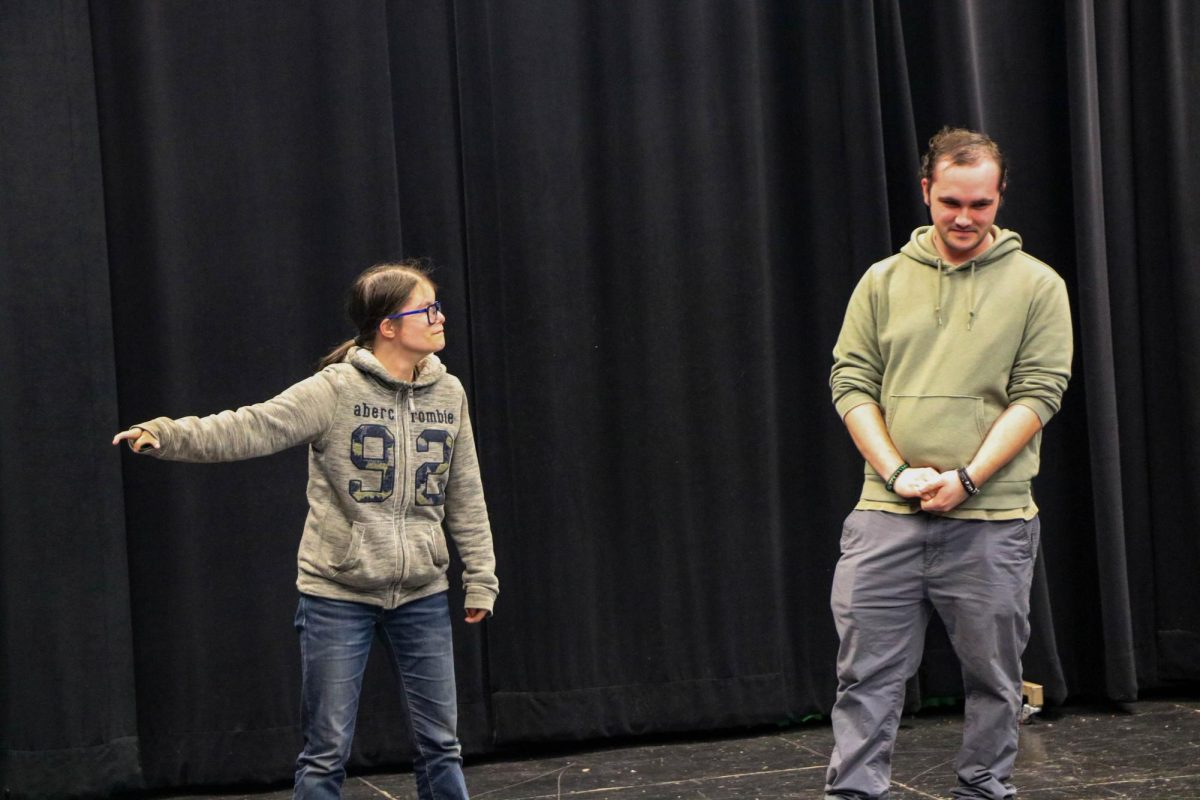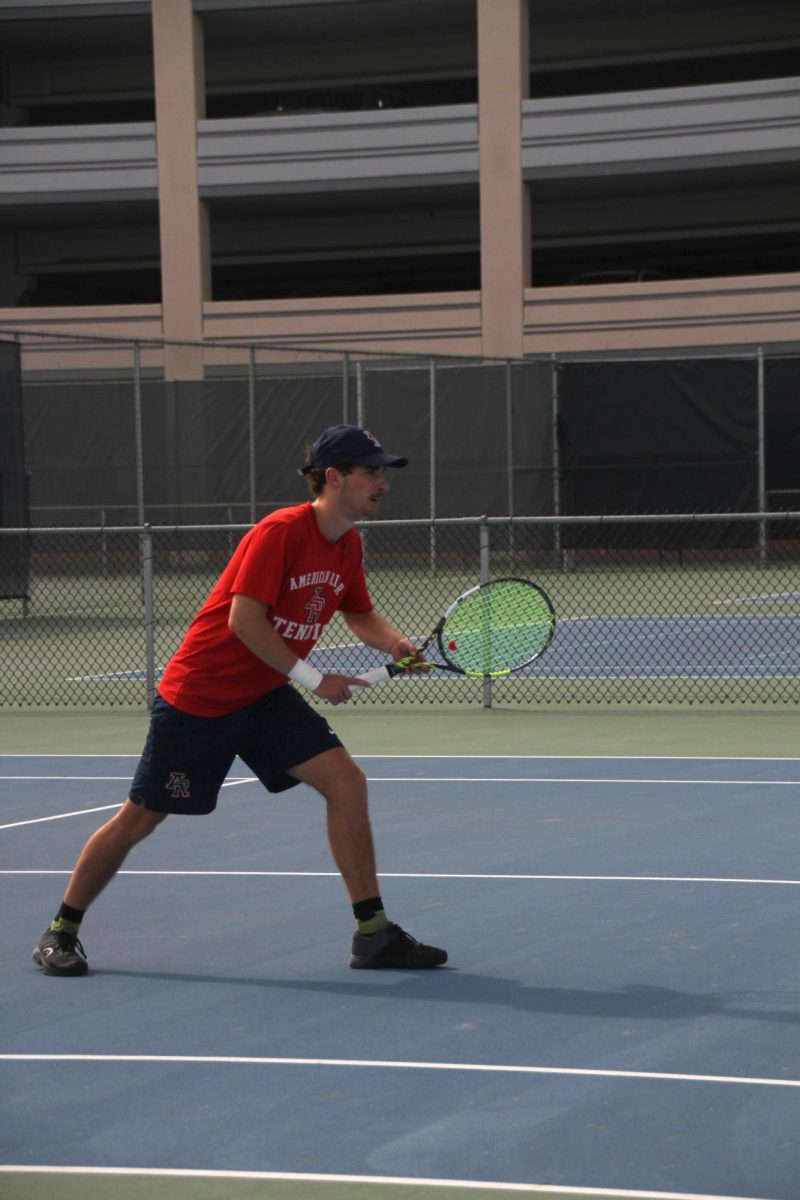The leaves are turning orange and red, and the weather is getting cooler. The T-shirts are out, and the sweaters are in. For many, a crucial fall ritual is a rewatch of “Gilmore Girls,” a 7-season CW show that aired in the 2000s following the relationship between a single mother and teenage daughter. As beloved, nostalgic and cozy as this show is, the daughter in the duo, Rory Gilmore, is actually one of the most disliked characters on television.
Rory is an intelligent, studious, introverted girl who is adored by everyone who comes across her. She gets into a prestigious preparatory high school and later Harvard and Yale. She gets straight A’s while somehow never appearing stressed, overwhelmed or frazzled, not even a hair out of place. She has this magnetism that draws friends and boyfriends to her without her having to lift a finger. She impresses people just by being herself. This is a girl who seems to have it all. Her parents, grandparents, friends, town, classmates, the boys she dates, almost everyone is obsessed with her. They put her on an immense pedestal, constantly praising her intelligence, her beauty, her potential and her kindness—essentially, she can do no wrong. The show’s viewers, however, don’t feel as sympathetic. As the show progresses, Rory’s likeability dwindles. It seems that the unadulterated praise she received during her formative years got to her head. Being so effortlessly high achieving early on, and being so adored for it, actually turned out to be a disadvantage to her.
A bright young girl who seemed to have so much potential for achieving her dreams of being a foreign correspondent ended up spontaneously dropping out of Yale before her last year. Though she does change her mind and re-enroll, the bad decisions don’t stop there. As the show progresses, her entitlement and ego seem to grow. Some examples are being annoyed that she wasn’t treated with the respect she deserves due to her prestigious family name or believing she was a shoo-in for a New York Times fellowship that only accepts four students throughout the country. As unlikeable as this behavior appears to viewers, especially when considering how privileged she is and how unaware she is of that privilege, her behavior is not entirely her fault.
Rory is a gifted kid. A child who shows more potential in academic and intellectual pursuits than their peers. These types of students are typically separated from the other members of the class and taught at a more advanced level. They are constantly praised by the adults around them and are made to feel like they are better than the rest of the class. Most importantly of all, they are not lauded for their hard work or persistence, but instead for their natural-born intelligence. As a result, they don’t feel like they need to work as hard as other people and are more focused on the outcome and external metrics of success rather than how they feel about themselves.
While it’s true that some kids naturally do better in school than others, and it’s true that they should be given the resources they need to succeed, there are a few issues with separating them from the rest of the class.
First of all, we have a very one-dimensional view of intelligence. If a child gets good grades at school or is good at subjects like math or writing, they are considered to have above-average intelligence. What if there is another kid who is an exceptional painter, or is more empathetic than the average kid their age, or has an intuition for music and rhythm? These types of skills don’t typically land the children into the gifted program. From a practical perspective, this ties back to how all STEM subjects (and some humanities) are valued higher in society than the arts or even interpersonal skills. The former has more money-making potential, and therefore it’s in the government’s interest to boost these fields. As a result, this does a disservice to the special skills and talents other kids have. Everybody has at least one thing they’re good at and every child deserves to be given the opportunity to see where that potential can lead them. This starts with a shift in how we think about intelligence. The world needs all types of people—the intellectuals, the creatives, the visionaries, the dreamers, the connectors. In order to create a balanced, well-rounded society, every child’s hidden potential needs to be tapped, not just those who are skilled in certain specific domains.
Another issue with gifted child programs is elitism, and how it affects the self-esteem of students who are not part of this seemingly exclusive club. The students not selected for the gifted program may feel less than the students who are. As the childhood years are so formative, this can ingrain the belief into their heads that they are not as smart, worthy or valuable as the students who are selected for these programs. Not only does this affect their self-image, but these kinds of beliefs can become self-fulfilling prophecies. Students who don’t believe they are as smart and capable will not see any point in putting in the extra effort they need to succeed and not reach their potential, thus confirming these beliefs. The first step to achieving anything is the belief that one is capable of it, and programs like these may reduce the feeling of agency from these children.
The other side of this coin is the superiority complex that the gifted children may feel over the non-gifted children. Speaking as someone who was a gifted child, I felt like I was inherently better than the other kids who just didn’t possess the natural-born “genius” that I possessed. This sort of hierarchy can cause gifted children to treat the non-gifted children poorly or less than, when kids should instead be taught that everyone is equal. As I mentioned earlier, these types of beliefs created in the formative years can become self-fulfilling prophecies. The idea that the gifted child is smarter than everyone else, that they don’t have to work as hard as everyone else, can stick with them well into adulthood. While they can surf through their childhood on this wave, it will drown them as they get older. After all, hard work ultimately triumphs over natural-born intelligence. The non-gifted children will have learned how to study, how to ask for help, how to manage their time, and how to put in the effort they need to put in to reach their full potential. The gifted children will not have learned these skills. They never had to, and it will come back to bite them later.
The internet has coined a term over the past decade: “gifted-child syndrome.” While not an actual disease, it is a way of describing the consequences of being put on this pedestal by authority figures during one’s formative years. Common traits of gifted-child syndrome are burnout (as a result of seeking external validation), being a perfectionist (due to the high expectations placed on them), not being able to stick to things (because they are used to being good at something the first time they try it), not being able to manage stress, their time, exert discipline, or go out of their comfort zone (because they never had to in the past) or in general suffering from low self-esteem (from not being able to fulfill their potential). These all culminate into a disastrous concoction.
It might be time to rethink these so-called gifted child programs. Being put on a pedestal is not a gift but a curse. Someone who is viewed to be better than the average human is also not given the freedom to be as flawed as the average human. It’s similar to the fable of the tortoise and the hare. Yes, the hare initially shows an aptitude for speed, but as a result of it, he doesn’t think he has to work as hard as the tortoise. The tortoise who is slow throughout the race ends up winning due to his consistent effort.
Additionally, it would be helpful to reevaluate the way we measure intelligence. Someone high in logical intelligence is considered smart even if they have low emotional intelligence. However, someone high in emotional intelligence will not be viewed as smart unless they have logical intelligence. Why should one be considered better than the other? Not all gifts look the same.














